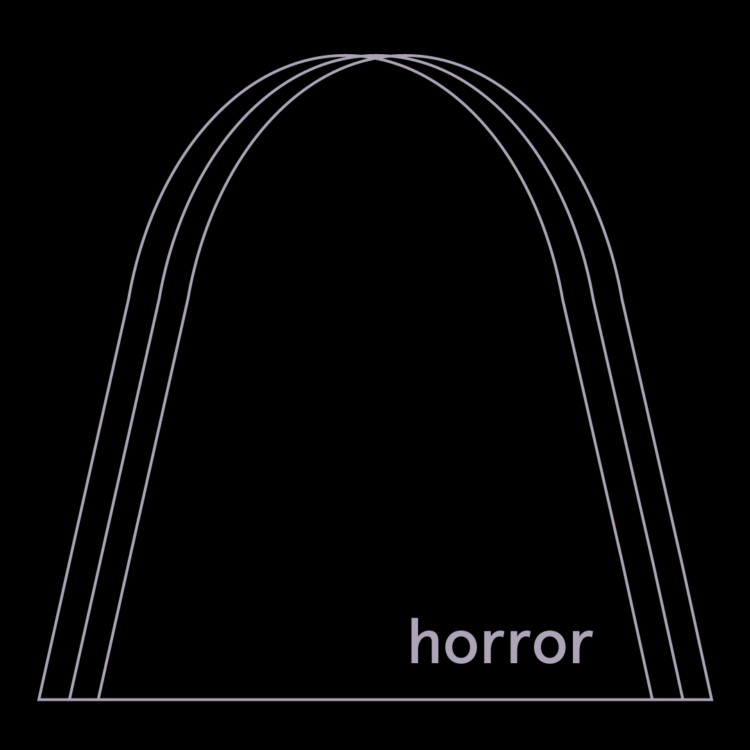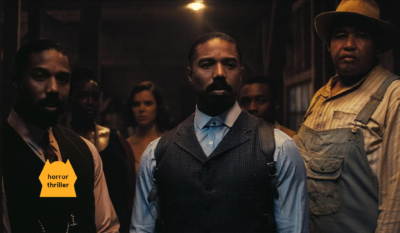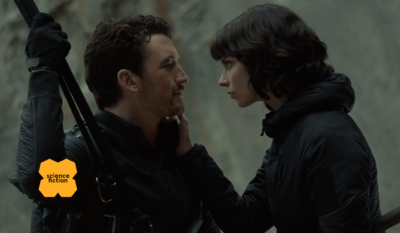Three Black women navigate the horrors — both real and supernatural — of working and attending a predominently white institution in Master
Master is playing at the 2022 Sundance Film Festival. It will be released on Prime Video in March.
The most horrifying scene in Master, the feature debut of director Mariama Diallo, takes place at a house party. There's nothing quite supernatural about it, despite the core of the movie involving a legend centering on ghosts and witches. In the party scene, freshman Jasmine Moore (Zoe Renee) is having the time of her life as the song playing switches to Sheck Wes' “Mo Bamba.” Around her, white faces illuminated in red begin to crowd around her and scream the lyrics without regard: “I be ballin' like my n— Mo.” Except they don't censor themselves. Diallo directs the scene with intense precision. The swirling camera blurs the faces around Jasmine until they look inhuman. It's claustrophobic.
That's the overwhelming feeling throughout Master: an atmospheric sense of creeping dread that points to the supernatural haunts on the campus of Ancaster College. At the same time, the film works just as much to translate the very real feeling of three Black women as they navigate attending and working at a predominately white institution. Combining elements of Italian Giallo films — specifically Suspiria — and social horrors like His House, Diallo creates a type of haunted house movie that keeps you at arm's length — until it doesn't.
ADVERTISEMENT
Along with Jasmine, the movie follows the newly appointed House “Master,” or dean of students, Gail Bishop (Regina Hall) as she navigates the waters of leadership as the first Black person appointed to the role. Both women face microaggressions, and macroaggressions, in their day-to-day life. Jasmine, one of the few black students at the school, is asked to have her bag searched after it sets off an anti-shoplifting alarm. Gail, in a meeting with college leadership, is asked if she could be objective in determining whether Professor Liv Beckman (Amber Gray), a Black professor, should get tenure.
Ancaster — a fictional college substitute for any Northeast liberal arts school — has its own share of mythology and lore, not uncommon for institutions of its kind. For Ancaster, it's the story of Margaret Millett, a woman accused of being a witch and who was killed near school grounds. Legend has it that since then, the school has been cursed and she returns at night to claim the souls of students. Learning about this tale sets Jasmine on edge from the start, and it isn't helped by the fact that a student killed herself in the very room she lives in.
Diallo, taking a page from the shadowy film noir stylings of Giallo films, constructs the movie and school like a maze where the walls slowly close in on the characters. Jasmine, for reasons not entirely her own, never quite finds her footing, socially or academically. Gail, on the other hand, finds her path by potentially compromising her own identity. The dueling storylines have their strengths and keep the plot moving, though sometimes the lack of focus removes some of the effectiveness of the horror and story.
ADVERTISEMENT
Despite its assured direction, Master is not a perfect film. It falls into some of the trappings of a first-time director — showing instead of telling, uneven pacing and plotting — but manages to keep audiences engaged with horror imagery that sticks well past the end of the movie. And as well rendered as the supernatural sequences are — Jasmine's nightmare encounters are sufficiently creepy — a scene with a seven-person panel consisting of five white men and women, an Asian man, and a Black woman, determining the worth of a Black professor, is just as unsettling.
Gail, who is a face of resilience and determination throughout the movie, tells a defeated Jasmine, “it's not a ghost, it's not a witch, it's America.” Diallo likens the very real experience of Black women in spaces built by and for white people to the oppressive weight of an urban legend like the one of the witch at Ancaster. These are the shadows you can't shake, the itches you can't scratch. These are the memories and ghosts that are always there and always weighing you down. The movie doesn't give many solutions to this condition but instead offers the solution by portraying the problem for what it is: true horror.
ADVERTISEMENT
More movies, less problems
- Jordan Peele Unleashes the First Trailer for ‘HIM'
- ‘Sinners' is the best movie of the year | movie review
- Romantic sci-fi thriller ‘The Gorge' hits its mark | movie reivew
Hey! I'm Karl. You can find me on Twitter and Letterboxd. I'm also a Tomatometer-approved critic.
💌 Sign up for our weekly email newsletter with movie recommendations available to stream.
ADVERTISEMENT
ADVERTISEMENT



